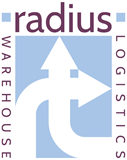Whether shipping products for business or leisure, international freight movement requires you to abide by certain rules. These are in place to prevent illegal items from moving between countries, to ensure that only accurate information is given and to speed up the customs process. Understanding what documentation you need is something that an experienced freight forwarding company, like Radius Warehouse and Logistics Ltd, can do. This blog will look at what documents are required when importing goods overseas to prevent you from experiencing delays, fines and other time-consuming issues.
While the direct requirements will vary in some way depending on the country in question, there are some basics you should always cover.
Commercial Invoice
This is an official, clearly-written contract between the exporter and the importer. It needs to include information including:
- Importer and exporters name and address
- The date the invoice was issued
- A complete and accurate description of the goods
- The number of goods
- The shipments value and the items total value
- The total invoice value (with currency)
- Terms of payment
- Terms of delivery
This should be prepared by the exporter and submitted with an extra copy. It can be raised in any native language but common practice asks that an English copy is included.
Customs Value Declaration
If the shipment exceeded 20,000 Euros, you need to submit a Customs Value Declaration. It will be used to decide the taxable value and associated duties related to these products. The document generally uses the price paid but can be adjusted if commissions, royalties or internal transport costs need to be considered.
Transportation Documents
The information required here varies depending on the method of freight movement chosen – air, sea or road generally. You may need a Bill of Lading, a Waybill or a Carnet in order for goods to be easily imported.
VAT Documentation
Goods entering the UK outside of the EU that are entered into free circulation are subject to Import VAT. If importing from non-EU countries, you will need a C79 import tax certificate to prove the import VAT has been paid. Certain items, including art, antiques and collector’s items, can be imported at a reduced rate.
Packing List
You need to clearly specify what is within the shipment and how this has been loaded. This information should be provided on a Packing List and must include everything inside. Any wayward products will be removed, returned or possibly destroyed.
Importing goods internationally requires a degree of knowledge to ensure issues don’t arrive. If you would like any support regarding the correct documentation to use, the team at Radius Warehouse & Logistics are on help to support your freight movement needs.



